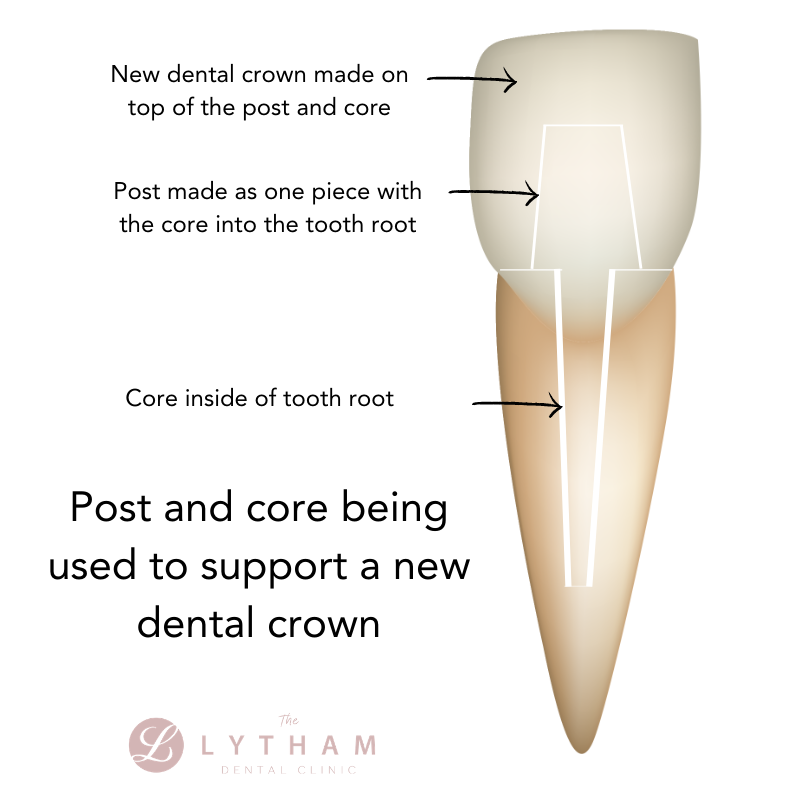
Crowns
Put a crown on, you deserve it!
 Do you want the best way to save your tooth?
Do you want the best way to save your tooth? Do your fillings keep failing?
Do your fillings keep failing? Have you had a Root Canal Treatment?
Have you had a Root Canal Treatment? Do you have an unsightly large filling?
Do you have an unsightly large filling? Unhappy with a black mark around the bottom of your existing crowns?
Unhappy with a black mark around the bottom of your existing crowns?Simon came to us as he was unhappy with his smile. He's had crowns, whitening and composite bonding. He was a nervous patient at first but we went at Simon's pace. He was also able to spread the cost of his investment.
All our crowns are individually crafted by the finest technicians using the latest technology and highest quality materials. They will be hand painted to match the colour of your teeth. They should fit snuggly between your other teeth and they will be made bespoke to you. Your family and friends won’t be able to tell the difference.
Between them, our Dentists have fitted thousands of crowns thus saving the lives of many teeth.
Frequently asked questions about dental crowns
How long do dental crowns last?
Depending on the type of dental crown, studies show that the long-term survival rate (8 years or more) is anything from 87.4% for an all-ceramic crown up to 95.9% for a porcelain fused to metal crown. With good oral hygiene and maintenance dental crowns can last an entire lifetime.
What to expect when getting a dental Crown
The procedure for dental crowns is routine and relatively simple.
APPOINTMENT 1: An initial assessment will determine if a crown is the right option for you.
APPOINTMENT 2: You attend a preparation appointment where any decay from the tooth is removed and the remaining structure is shaped and prepared for the dental crown.
An impression is taken of the prepared tooth and sent to a dental laboratory. A temporary crown made from plastic will then be placed whilst the impression is sent away.
The dental laboratory then crafts your new crown to specific prescriptions provided by your dentist.
APPOINTMENT 3: After the crown has been made you visit the dentist again to have it fitted.
Can a cracked dental Crown be repaired?
This is not usually possible. If a dental crown has cracked then it will need to be removed and you want made. Some dental crowns are made from a composite resin material. If this is the case then this type of crown may be able to be repaired by your dentist in your mouth without the crown being removed, although this is quite unlikely.
What material is used in dental crowns?
There are 2 types of dental crowns:
Porcelain fused to metal - as the name suggests this is a high-strength and beautiful dental porcelain which is bonded onto a metal substructure. The porcelain is the part that you see and it is this which matches in with your surrounding teeth, the metal substructure is there to give the whole crown strength.
Metal-free - again, as the name suggests, these have no metal however they often have either an alumina or zirconia framework onto which the porcelain is bonded. This framework gives the crown its overall strength. Some metal-free crowns have no high-strength framework, these are made from the most modern porcelain materials which have inherent strength and don’t need the strength of any framework.
How much tooth is needed for a crown?
Ideally, it’s best to have as much natural tooth structure as possible. Dentists don’t like to remove a healthy tooth, so maintaining as many healthy teeth as possible is always the goal.
However, sometimes tooth structure is removed due to decay or trauma, which leaves very little tooth for the crown to be attached to… However, there is a solution.
So long as the root is still intact, a root canal treatment can be performed; this is achieved by inserting a post into the root of the tooth, on top of which there is a core which provides the base onto which a dental crown can be made.

